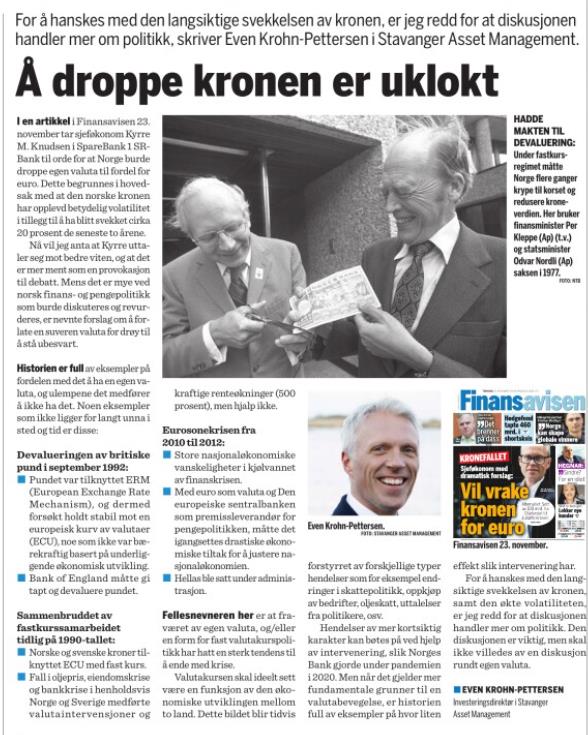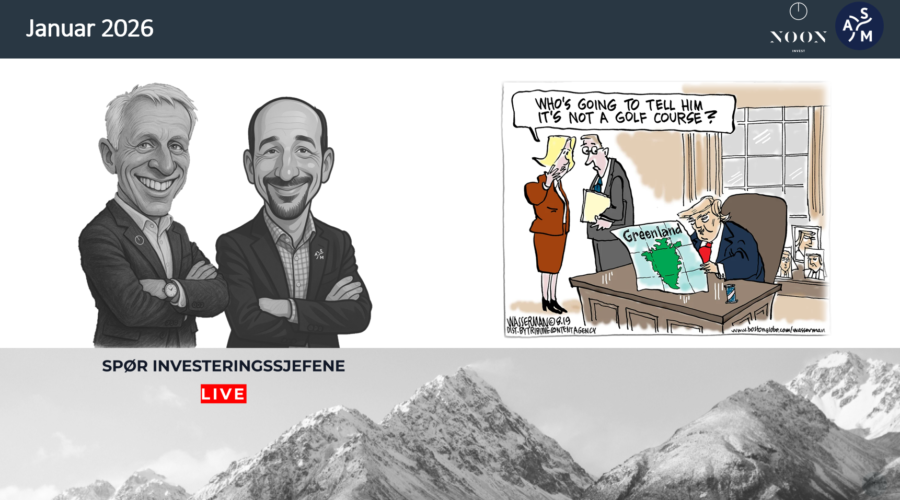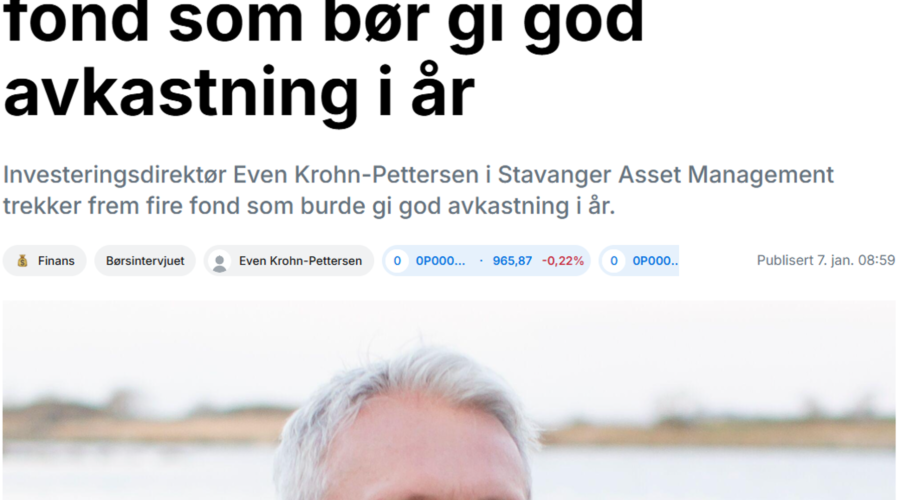In an article in Finansavisen on 23 November, chief economist Kyrre M. Knudsen of SpareBank 1 SR-Bank advocates that Norway should drop its own currency in favor of the euro. This is mainly due to the fact that the Norwegian krone has experienced considerable volatility in addition to having weakened by approximately 20 per cent in the past two years.
Now I would assume that Kyrre is speaking out against better judgment, and that it is more intended as a provocation for debate. While there is much about Norwegian financial and monetary policy that should be discussed and reassessed, the aforementioned proposal to abandon a sovereign currency is too far fetched to be left unanswered.
History is full of examples of the advantage of having one’s own currency, and the disadvantages of not having one. Some examples that are not too far away in time and place are these:
The devaluation of the British pound in September 1992:
• The pound was linked to the ERM (European Exchange Rate Mechanism), and thus tried to keep it stable against a European basket of currencies (ECU), which was not sustainable based on underlying economic development.
• The Bank of England had to give up and devalue the pound.
The collapse of the fixed exchange rate cooperation in the early 1990s:
• Norwegian and Swedish kroner linked to the ECU with a fixed exchange rate.
• Fall in oil prices, property crisis and banking crisis in Norway and Sweden respectively led to currency interventions and sharp interest rate increases (500 per cent), but did not help.
The Eurozone crisis from 2010 to 2012:
• Major national economic difficulties in the wake of the financial crisis.
• With the euro as currency and the European Central Bank as the premise provider for monetary policy, drastic economic measures had to be initiated to adjust the national economy.
• Greece was placed under administration.
The common denominator here is that the absence of an own currency and/or a form of fixed exchange rate policy has had a strong tendency to end in crisis.
The exchange rate should ideally be a function of the economic development between two countries. This picture is occasionally disturbed by different types of events such as changes in tax policy, acquisitions of companies, oil tax, statements from politicians, etc.
Events of a more short-term nature can be remedied by means of intervention, as Norges Bank did during the pandemic in 2020. But when it comes to more fundamental reasons for a currency movement, history is full of examples of how little effect such intervention has.
To deal with the long-term weakening of the Norwegian krone, as well as the increased volatility, I am afraid that the discussion is more about politics. That discussion is important, but should not be misled by a discussion about one’s own currency.
Even Krohn-Pettersen
Investment director at Stavanger Asset Management



